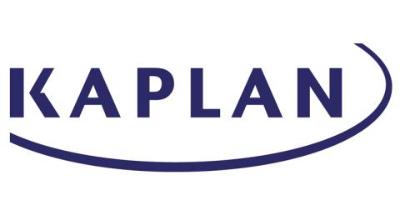Common Entities to Incorporate Small Businesses

One of the key steps to starting a small business is incorporating or forming an LLC.
Incorporation is the process of creating a corporate business structure. This structure allows the business to act as a separate, legal entity from its owner. Most small businesses start off as a sole proprietorship. This is considered the default entity formation. A sole proprietor has the ability to exercise complete control and be the boss.
However, a sole proprietor is also held responsible for everything that impacts the business. This is because the entity does not have limited liability. Limited liability is a form of protection that creates a separation between the business and its owner. Limited liability protects an entrepreneur’s personal assets, like houses and cars, in the event of an unforeseen circumstance that negatively impacts a small business.
In order to receive limited liability, a small business must incorporate. They need to choose an entity that offers this type of protection. Here are a few popular options for entrepreneurs. We’ll also take a look at the vital role CPAs play in the incorporation process.
- Limited Liability Company (LLC)
- Corporation
- S Corporation
Limited Liability Company (LLC)
A limited liability company (LLC) is a business entity that legally separates the business from its owner.
LLCs are a popular business entity. Owners of an LLC are known as members. The entity’s flexibility allows its members to choose an LLC structure that best fits the needs of the business. These include the following structure types:
- Single member LLCs. If an LLC only has one member, then that member will run the company.
- Member managed LLCs. Each member of the LLC runs the business as equals.
- Manager managed LLCs. A board of managers is appointed to oversee the direction of the LLC.
Additionally, an LLC has a pass-through entity status. This means business profits pass-through to the LLC’s members. Profits and losses are reported on individual tax returns and not at the business level. As a result, members may deduct losses or operating costs of the business on their personal tax returns to help offset other income.
Despite having a pass-through entity status, an LLC is treated as a partnership on the federal level. LLCs must elect to be taxed as an entity with flow-through taxation, such as an S Corporation, to help ease tax obligations and responsibilities.
Corporation
Incorporating as a corporation also provides businesses with limited liability protection.
However, corporations are not as flexible as LLCs. A corporation must follow a formal structure for running the business. This includes electing a board of directors and corporate officers. Corporate minutes must be taken during meetings. Bylaws must be established as the corporation’s rules and regulations. A corporation may issue shares of stock and sell percentages of the business to its owners, which are known as shareholders.
However, the formal structure of a corporation is often a strong fit for businesses looking to substantially expand their operations. It may be the best fit for a company that plans to go public, offer an IPO, and launch a worldwide presence.
S Corporation
As mentioned earlier, an S Corporation is a corporation with a pass-through entity. S Corps may elect to pass corporate income, losses, deductions, and credits through to its shareholders for federal tax purposes.
Here's how pass-through taxes work. The corporation’s shareholders report taxable activity of the company on their personal income tax returns. Doing this means S Corporations do not pay federal and state income tax. As a result, S Corporations are able to legally avoid double taxation.
Your business needs to be eligible if it files to qualify as an S Corporation. A few of the necessary requirements include the business being a domestic corporation, designating a registered agent for the company, having no more than 100 shareholders, and having a single class of stock.
How Can CPAs Help?
These are just three options of business entities entrepreneurs may choose to incorporate as. There are more entity formations, like partnerships and C Corporations, that may be a good fit for your business.
Prior to filing to incorporate your business, it’s important to meet with a CPA. A local CPA will be able to safely meet with you and answer any questions you may have about incorporation and business structures. This will give you peace of mind in knowing that you are choosing the best entity formation for your business and allow you to confidently file the necessary paperwork accordingly.
Deborah Sweeney is the CEO of MyCorporation.com. MyCorporation is a leader in online legal filing services for entrepreneurs and businesses, providing start-up bundles that include corporation and LLC formation, registered agent, DBA, and trademark & copyright filing services. MyCorporation does all the work, making the business formation and maintenance quick and painless, so business owners can focus on what they do best. Follow her on Twitter @deborahsweeney and @mycorporation.
Join MyCorporation's Partner Program
Share This Article
What's Trending?
Trending topics & tools for the CPA community
How Firms are Rethinking Reasonable Comp (Quick Video)
It’s a short video and makes the value of repeatable, data-backed approach clear (especially compared to spreadsheets, gut checks and one-off calculations).
Learn how 8am CPACharge delivers clarity and confidence for accounting firms.
8am™ CPACharge brings invoices, payments, and reconciliation together in a solution designed to make your day easier from start to finish.
Seniors on Social Security Could Face $460 Monthly Cut to Benefits
Jim Komoroski, RSSA®, is quoted in Newsweek, offering expert insight into the projected monthly cuts to Social Security benefits should Congress fail to act.
Resources
Valuable information provided by our sponsors.
Specialize in Social Security
Looking to enhance your retirement planning expertise? Your solution: pursue the Registered Social Security Analyst®...
CPAdirectory members have access to discounted auto and home insurance
At CPAdirectory, we think it's a good thing to provide our members with access to...
Free CPE Course: ChatGPT for Tax Pros — Limited Offer
CPAdirectory and CCH CPELink are giving you free access to the on-demand course: ChatGPT for...
PE Deals In Accounting: Valuations, Structure, Tradeoffs
In this webinar, you’ll hear from firm leaders and industry experts who will share real-world...
Stand Out as a Trusted Social Security Expert with the RSSA® Designation
Designed for CPAs, the Registered Social Security Analyst® (RSSA®) designation provides advanced training to help...
How Firms are Rethinking Reasonable Comp (Quick Video)
It’s a short video and makes the value of repeatable, data-backed approach clear (especially compared...












